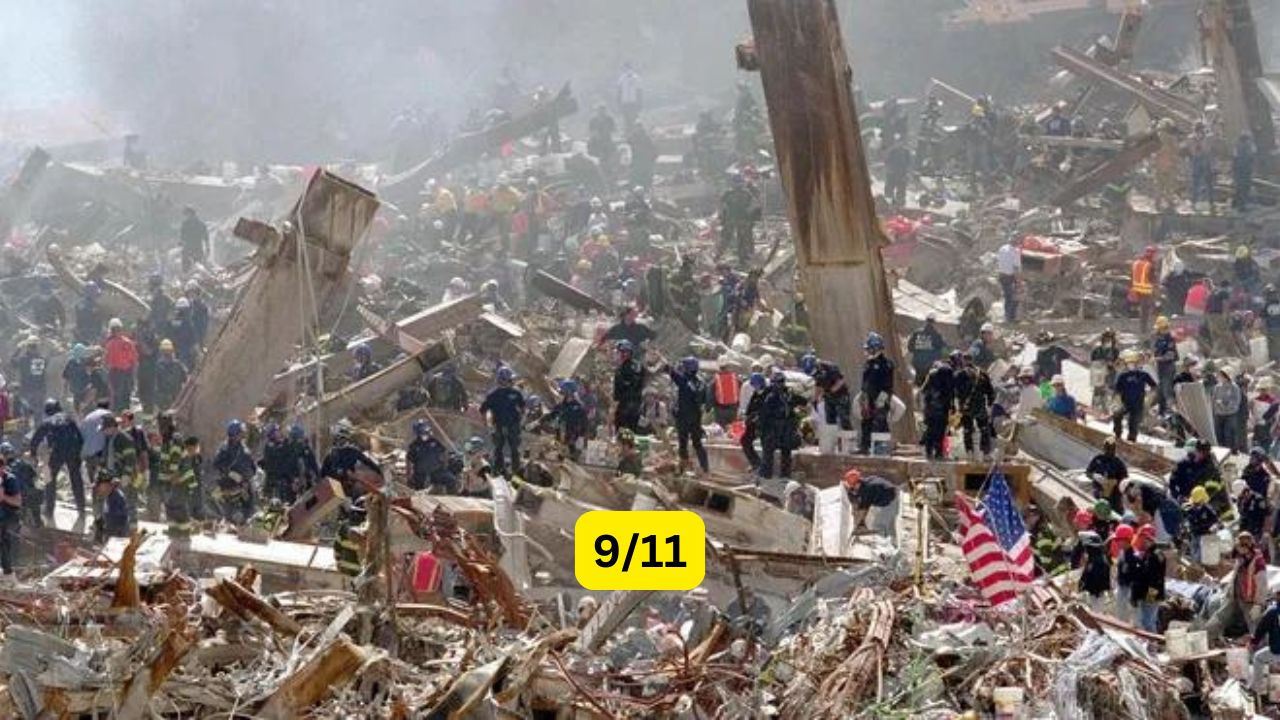
9/11
September 11, 2001—a date forever etched in history as one of the most tragic and transformative moments for the United States and the world. On this day, nearly 3,000 lives were lost when terrorists hijacked four planes, crashing them into the World Trade Center, the Pentagon, and a field in Pennsylvania. The attacks not only caused devastating loss but also reshaped global politics, security policies, and the lives of millions. As we mark another anniversary, it is essential to reflect on the impact of 9/11, honor the victims, and understand how this day continues to influence our world.
The Events of September 11, 2001: A Timeline of Tragedy
The attacks unfolded early in the morning, capturing the world’s attention and plunging the United States into chaos. Below is a timeline of key events on that fateful day:
- 8:46 AM: American Airlines Flight 11 crashes into the North Tower of the World Trade Center.
- 9:03 AM: United Airlines Flight 175 crashes into the South Tower, confirming to the world that this was a coordinated terrorist attack.
- 9:37 AM: American Airlines Flight 77 crashes into the Pentagon, targeting the heart of the U.S. military.
- 9:59 AM: The South Tower collapses after burning for 56 minutes, sending plumes of smoke and debris through Lower Manhattan.
- 10:03 AM: United Airlines Flight 93 crashes in a field near Shanksville, Pennsylvania, after passengers heroically attempted to overpower the hijackers.
- 10:28 AM: The North Tower collapses, marking the final devastating blow to the World Trade Center.
The images of the collapsing towers, people fleeing the smoke and debris, and the heroic first responders who rushed toward danger remain etched in the minds of those who witnessed the tragedy.
Impact of 9/11 on the United States and the World
The effects of 9/11 were immediate and far-reaching, transforming everything from national security to global diplomacy. Here are some of the most significant impacts:
1. A New Era of National Security
Following 9/11, the United States introduced sweeping changes to its security and defense policies. The Department of Homeland Security (DHS) was established to coordinate national efforts against terrorism, and the USA PATRIOT Act was enacted to enhance law enforcement’s abilities to prevent terrorist activities. Airports, public spaces, and even private communications were subjected to heightened scrutiny, fundamentally changing how security is perceived in everyday life.
2. The War on Terror
In response to the attacks, the U.S. launched the War on Terror, targeting terrorist networks like al-Qaeda and pursuing military operations in Afghanistan and Iraq. These efforts aimed to dismantle terrorist infrastructure and prevent future attacks, but they also sparked debate over military intervention, human rights, and the costs of war. The War on Terror reshaped global alliances and significantly altered the Middle East’s geopolitical landscape.
3. Economic Impact and Recovery
The immediate economic impact of 9/11 was severe, with the New York Stock Exchange closing for four days and businesses, especially in Lower Manhattan, suffering billions in losses. The long-term effects included increased spending on defense and security, changes in airline and travel industries, and the emergence of new technologies aimed at preventing future attacks.
4. The Human Cost
Beyond the loss of nearly 3,000 lives on 9/11, the human cost extended to thousands of first responders and survivors who have since faced health issues related to the dust and debris. The 9/11 Victim Compensation Fund and other support systems were established to assist those affected, highlighting the ongoing impact of the attacks on individuals and families.
5. A Changed American Psyche
The attacks fundamentally altered the American psyche, creating a sense of vulnerability that was previously unimaginable. Patriotism surged in the aftermath, but so did fear and suspicion, particularly toward Muslim and Middle Eastern communities. This shift led to increased incidents of discrimination and hate crimes, prompting ongoing discussions about tolerance, security, and civil liberties.
Commemorating 9/11: Memorials and Tributes
As the years pass, the importance of remembering and honoring those lost on 9/11 remains strong. Various memorials and events help keep the memory of the tragedy alive:
1. The National September 11 Memorial & Museum
Located at the site of the former World Trade Center, the 9/11 Memorial & Museum serves as a powerful tribute to the victims and first responders. The memorial features two reflecting pools set in the footprints of the Twin Towers, surrounded by the names of those who perished. The museum houses artifacts, personal stories, and exhibitions that document the events of the day and the resilience of those affected.
2. Tribute in Light
Every year on September 11, two beams of light are projected into the sky from Ground Zero, symbolizing the Twin Towers and serving as a beacon of remembrance. The Tribute in Light has become an iconic visual that honors the memory of those lost while inspiring hope for the future.
3. Annual Commemorations and Moments of Silence
Across the country, moments of silence are observed at key times to mark when each of the planes crashed. These observances, along with reading the names of the victims, serve as a somber reminder of the lives lost and the enduring impact of the attacks.
2024 Commemorations: A Look at This Year’s Observances
This year, as we commemorate the 23rd anniversary of the attacks, notable figures such as Vice President Kamala Harris and former President Donald Trump have participated in memorial events, emphasizing unity and remembrance.
- Kamala Harris’s Tribute: Vice President Harris attended a ceremony at the Pentagon, reflecting on the heroism displayed on 9/11 and the need to continue supporting those who protect the nation. Her speech highlighted the resilience of the American spirit and the importance of standing together in the face of adversity.
- Donald Trump’s Remarks: Former President Trump shared his reflections on 9/11 during a separate commemoration event, focusing on the importance of honoring first responders and military personnel. His remarks underscored the ongoing impact of 9/11 on national security and the collective memory of the nation.
These commemorations serve not only as a tribute to those who lost their lives but also as a reminder of the need for unity in the face of division and the ongoing challenges of maintaining national security.
Lessons Learned from 9/11
The lessons of 9/11 extend far beyond the immediate aftermath of the attacks. Here are some key takeaways that continue to shape our world:
1. The Importance of Resilience
The response to 9/11 showcased the resilience of individuals, communities, and the nation. Stories of bravery, from first responders who rushed into the towers to ordinary citizens who helped strangers, serve as enduring reminders of human courage and compassion.
2. Vigilance Against Terrorism
While security measures have evolved significantly since 9/11, the threat of terrorism remains. The attacks highlighted the need for constant vigilance, international cooperation, and adaptive strategies to prevent future incidents.
3. Balancing Security and Civil Liberties
The enhanced security measures that followed 9/11 sparked debates about privacy, surveillance, and civil liberties. Balancing the need for safety with the protection of individual rights remains a complex and ongoing challenge.
4. The Power of Unity
Perhaps the most enduring lesson of 9/11 is the power of unity in the face of tragedy. The immediate aftermath of the attacks saw a surge in national solidarity, with people coming together regardless of background, belief, or political affiliation. This spirit of unity serves as a reminder of what is possible when we put aside our differences and work toward a common goal.
Conclusion: Never Forget
As we reflect on 9/11, it is crucial to honor the memories of those who lost their lives, celebrate the bravery of first responders, and acknowledge the resilience of survivors. The attacks changed the world in ways that continue to be felt today, reminding us of the importance of vigilance, unity, and compassion.
The legacy of 9/11 is not just one of tragedy but also of hope, resilience, and the unbreakable spirit of those who faced the unimaginable. As we remember this day, let us strive to build a world where the lessons of 9/11 guide us toward greater understanding, peace, and solidarity






